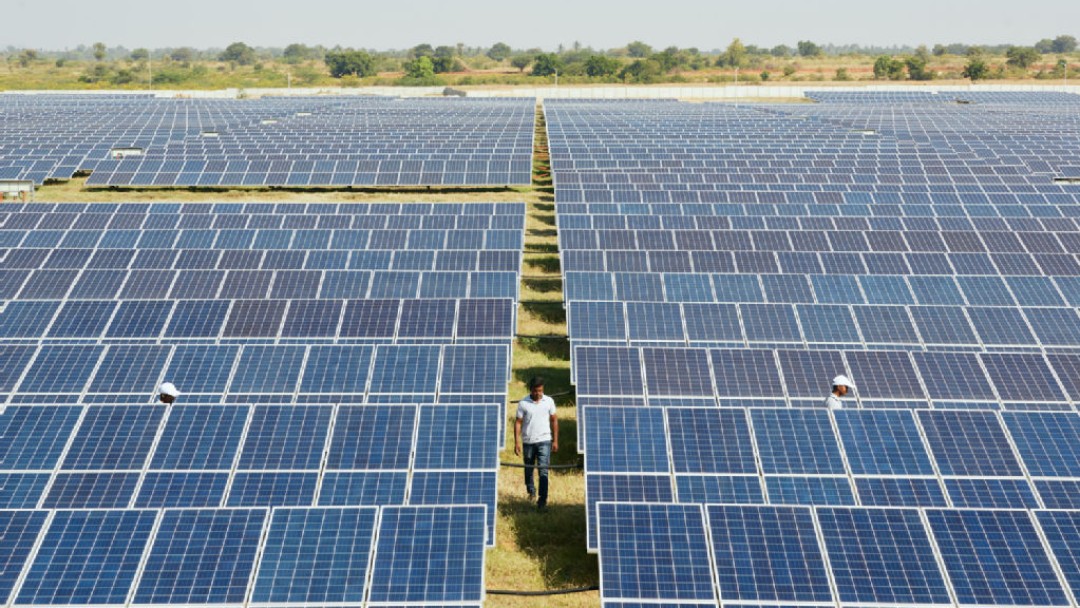News from 2022-01-17 / KfW Development Bank
Clean energy to achieve India's climate targets
KfW promotes smart electricity meters and expansion of the power grid

To drive forward the energy transition in India, KfW is supporting the country with a EUR 140 million loan on behalf of the German government. This will support the expansion of the distribution grid in the Indian state of Madhya Pradesh. The aim is to create a grid that can absorb fluctuations better, which occur when green energy is fed into the grid. Power losses would be reduced, and greenhouse gas emissions will be cut by 110,000 tons of CO2 per year.
The program, funded by KfW on behalf of the German Federal Ministry for Economic Cooperation and Development (BMZ), will expand the existing grid infrastructure in the state of Madhya Pradesh. One of the measures being undertaken is having intelligent electricity meters (known as smart meters) installed in the consumers' homes. These smart meters record, for example, when a household is using a particularly large amount of electricity. These peak loads can then be factored into the distribution of energy. In addition, users pay closer attention to their electricity consumption when it is displayed to them accurately. This leads to a more conscious use of energy. It is now also easier for network operators to measure electricity consumption accurately. This provides a basis for better to calculate both technical and financial losses.
Stable power supply
The project will make it possible to maintain a more stable power supply even as demand for electricity increases. India is generating more and more electricity from photovoltaics and wind power. However, the amount of electricity produced with the help of wind and solar power fluctuates greatly. With outdated transmission grids, this leads to power outages. Strengthening distribution networks is therefore essential to ensure that green electricity reaches consumers.
Reducing greenhouse gas emissions
The expansion is urgently needed because in Madhya Pradesh, as in other states in India, electricity consumption is steadily increasing. More and more people are moving to the cities, creating increased demand there. In addition, villages are increasingly being connected to the grid.
"Our project is helping the country to meet its growing electricity needs more efficiently and sustainably," said KfW portfolio manager Hille Henebry. "This is the basis for economic development in rural regions as well."
India is the world's third-largest emitter of greenhouse gases after China and the United States. The government has now set a target of increasing renewable energies to a volume of 175 gigawatts by 2022, and even 450 gigawatts by 2030, as announced at the International Climate Conference in Glasgow.
More on KfW's commitment SDG 7 - Affordable and clean energy

Share page
To share the content of this page with your network, click on one of the icons below.
Note on data protection: When you share content, your personal data is transferred to the selected network.
Data protection
Alternatively, you can also copy the short link: https://www.kfw-entwicklungsbank.de/s/enzBWrMC.CoMA
Copy link Link copied